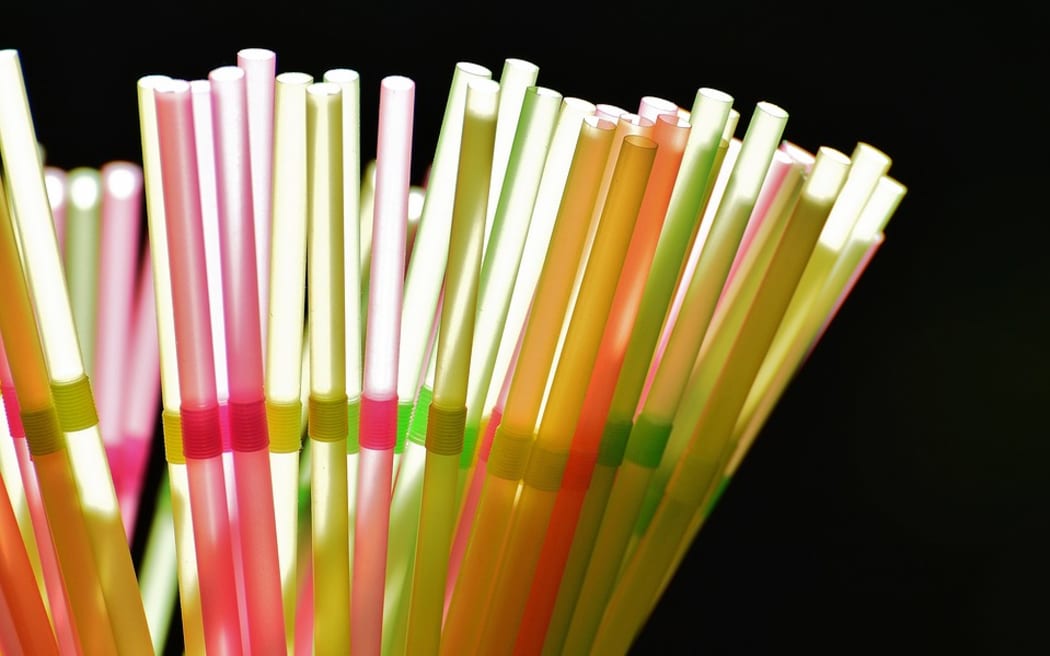From July 1, you won't be able to put your fruit and veges in a plastic produce bag at the supermarket. New Zealand's making big strides in phasing out single-use plastics, but are we too narrow in our thinking about how to deal with waste more generally?

Plastic straws will all but disappear from July 1. Photo: Pixabay
Want to drink your glass of Coke with a plastic straw or eat your takeaways with a plastic fork?
You'll be out of luck when from July 1, when these and other items are banned as part of the ongoing phasing out of single-use plastic items.
One of the big changes to kick in this weekend is the removal of plastic produce bags from supermarket fruit and vegetable aisles.
As Environment Ministry waste stream policy team acting manager Daisy Croft explains to The Detail, shoppers should think about whether they need a bag at all, or if they do, grab a few reusable ones.
And when picking up those takeaways, people should remember to take reusable cutlery, although there will be non-plastic options available.
People who need plastic straws for health and disability reasons will still be able to get them, but besides that they'll be banned.
Plastic stickers on fruit and vegetables will also shift towards being home compostable.
The changes are part of the government's national plastics action plan, drawn up in response to a 2019 report by the Prime Minister's chief science advisor called Rethinking Plastics.
But these changes are small and Croft admits the government's in "catch-up mode".
"There's no quick fix to the plastics problem because it does require changing individuals' behaviours and habits.
"But there is a lot going on and I would say, for example, New Zealand's the first country in the world to phase-out produce bags, and we're also one of the first to be taking action on produce labels and we can be proud of that."
Hannah Blumhardt, a waste researcher and senior associate at the Institute of Governance and Policy Studies at Victoria University, says there should be more of a focus on phasing out single-use items generally, regardless of what they're made out of.
"We might replace single-use plastic plates with a single-use paper plate, but that paper plate has still required resources to be made, still requires energy to make that paper plate, and then the paper plate is probably going to be food contaminated so it's not going to be recyclable – it often won't be compostable either," she says.
"You've got countries like France – at the beginning of this year they've said that if you're a hospitality outlet and you're serving customers to have here, it is mandatory to use reusable plates and cups and cutlery – so you end up reducing all disposable items.
"In Germany, they've also passed a law that's come into effect this year where any hospitality outlet that does takeaway, and that includes delivery services, they have to offer a reusable takeaway container option alongside the single-use option and it's got to be the same price or cheaper than the single use option."
Blumhardt says politicians also need to be more creative when it comes to policies and regulations that reduce our reliance on plastics and other single-use items.
Hear more about our problems with waste and recycling by listening to the full podcast episode.
Check out how to listen to and follow The Detail here.
You can also stay up-to-date by liking us on Facebook or following us on Twitter.

Photo:


